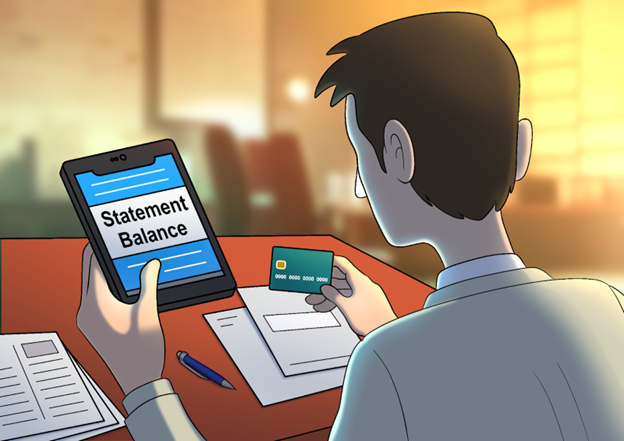- Blogs
- /
- How to Report Rental Payments to Credit Bureau for Free in 3 Steps
How to Report Rental Payments to Credit Bureau for Free in 3 Steps

Summary
For most people, rent is one of the biggest monthly expenses. Sadly, these rent payments aren’t reported to credit bureaus and don’t influence their credit score.
Why? Because landlords aren’t money lenders in the traditional sense. That means rent cannot count as debt. Luckily, several third-party reporting services report rent payments to your credit bureaus.
Today, we’ll delve into how to report rental payments to credit bureau for free. You’ll get a clear idea of how rental payment reporting works and how it can help you build a more robust credit history.
Key Takeaways
- Reporting rent payments is valuable in building your credit score without credit cards and other loans.
- When using rent reporting services, always pay your rent early. Early and late payments can positively and negatively affect your credit score.
- Get your landlord involved; they must provide vital documents during the rent reporting process.
- You can choose between paid and unpaid services when choosing rent reporting services.
- Rent reporting motivates tenants to pay their rent on time.
- Free-rent reporting services provide excellent rent reporting services. However, paid services often include added benefits like extensive credit reporting coverage and dedicated customer support.
How to Report Rental Payments to Credit Bureaus for Free With These 7 Rent Reporters

The best way to report your rental payment to credit bureaus for free is by using reliable reporting services.
These free rent reporting services have helped millions of tenants leverage their rental payment history to impact their credit scores positively.
Let’s explore some of them.
- Rental Kharma: Rental Kharma allows tenants to report their rent payments to major credit bureaus. The basic service is free, but tenants can upgrade to a premium plan for additional features.
- LevelCredit: LevelCredit provides free rent reporting services. It helps tenants build credit by reporting their rent payments to Equifax and TransUnion.
- Esusu: Esusu offers a free rent reporting service that allows tenants to report rent payments to credit bureaus. Plus, Esusu provides some of the best financial inclusion tools in the market.
- Rock the Score: Rock the Score is a free rent reporting platform that helps folks report their rental payments to credit bureaus, potentially improving their credit scores.
- PayYourRent: PayYourRent is a property management platform that includes rent reporting as one of its features. Tenants using PayYourRent can report their rent payments to major credit bureaus for free, contributing to their credit history.
- RentTrack: RentTrack offers rent reporting services that enable tenants to have their monthly rent payments reported to Equifax and TransUnion. Tenants can use RentTrack’s platform to make rent payments, and the service reports the payments to credit bureaus at no additional cost.
- RentReporters: RentReporters allows tenants to report their rent payments to major credit bureaus. By doing so, tenants can build or enhance their credit history. RentReporters offers a free trial period, allowing users to experience the service before deciding to subscribe.
These rent reporting services have provided millions of tenants a valuable opportunity to positively impact their credit scores without incurring additional costs.
Three Steps You Must Take When Reporting Rental Payments
1. Get Your Landlord Involved
Getting your landlord involved is crucial when going about rent reporting. Why? Because they need to provide specific information for the reporting process. So, ensure you approach your landlord and discuss the possibility of reporting your rent payments.
Your landlord will typically need to provide details like your lease agreement, monthly rental amount, and payment history. This information helps accurately report your on-time rental payments to the credit bureau.
We understand it can be challenging to start this conversation with your landlord. One way to get the ball rolling is to explain how free rent reporting can benefit both of you.
Explain how using a rent reporter motivates tenants to pay their rent on time since it helps them build their credit score while showcasing the landlord’s commitment to responsible tenants.
2. Get the Required Documentation
You’ll need specific documents that prove your rental history and payment record to report your rental payments.
Ensure you’ve got:
- Copies of your lease agreements.
- Proof of monthly rental payments (Think bank statements).
- Emailed receipts from your landlord or property manager.
- Any other relevant paperwork that demonstrates consistent on-time payments.
These documents are essential for establishing a clear picture of your financial responsibility as a tenant.
So, gather these documents beforehand before initiating the free rent reporting process. Having all the necessary paperwork ready will make the rent reporting process smooth and efficient.
3. Report Your Past Rent Payments
Now that you’ve got a solid idea of the documents you need when using free rent reporters, here’s how to report your past rent payments.
First, most rent reporting services only allow you to report payments made while the service is active. However, some services may offer the option to backdate payments within a specific timeframe.
Backdating your rental history can be beneficial if you have a long-standing positive rental payment history that reflects your responsible payment habits.
Doing this can potentially improve your credit score by showcasing your consistent on-time payments over an extended period.
But, before trying to backdate your rent payments, ensure you meet all the requirements set by the rent reporting service.
Some rent reporting agencies like RentTrack allow tenants to report up to 24 months of past rent payments as long as they have maintained accurate payment history records.
Using this feature has helped folks significantly enhance their credit profile by including substantial historical data about their timely rental payments.
What You Must Know About Rent Payment Reporting
Your credit score impacts many aspects of your financial life. It reflects your creditworthiness and helps lenders decide whether to approve your loan or credit card application.
And just in case you were wondering, your credit score is calculated based on factors like your credit payment history, the amount you owe, length of credit history, new credit, and the types of credit you’ve used.
Maintaining a healthy credit score is crucial to getting low-interest rates when you apply for loans and lines of credit. A good credit score is the key to enjoying the best interest rates. Plus, it gives you a better chance of getting approval for various financial products.
As discussed above, even though rent payments are a significant part of most people’s monthly expenses. But they aren’t automatically included in traditional credit reports.
This means you could make on-time rent payments for decades, but it won’t positively impact your credit score.
Reporting rent payments to major credit bureaus like Equifax and TransUnion can improve your credit profile. That’s because it showcases your responsible payment behavior beyond traditional forms of debt like mortgages or car loans.
Several services now allow you to report your rental payments to the major credit bureaus. Doing this allows you to strengthen your credit history without taking on additional debt or expenses.
These services act as intermediaries between landlords and tenants, ensuring that rent payments are accurately reported to the relevant agencies.
California Senate Bill 1157
California is at the forefront of a new trend. In 2020, the state passed the California Senate Bill 1157 into law. SB 1157 is all about reporting rental payments to credit bureaus for free, and it applies to operators of multi-family units that receive subsidies from the government.
Landlords of medium-to-large multi-family housing units must allow tenants to report rent payments to a major credit bureau. The goal is to help low-income renters build credit histories.
Why Tenants and Landlords Need Rent Reporting

How Rent Reporting Benefits Tenants
Reporting rental payments to credit bureaus can significantly benefit tenants in more ways than one. You can establish a positive credit history more easily by reporting rent payments.
And this comes in pretty handy for folks who don’t have access to other types of credit like credit cards or loans.
For example, if you consistently pay your rent on time and it’s reported to the credit bureau, it can reflect positively on your credit report.
But that’s not all. You see, when your early rent payments are reported to the credit bureau, it increases your chances of getting future loan approvals. Lenders will always consider your payment history when assessing your eligibility for loans or mortgages.
Therefore, having a record of timely rental payments on your credit report can enhance your overall financial standing.
What Landlords Need to Consider
Landlords should carefully weigh the potential benefits and drawbacks before signing up for rent reporting. One consideration is how participating in rent reporting could impact landlord-tenant relationships.
Some tenants may feel uncomfortable sharing their rental payment information with third parties like credit bureaus.
On the other hand, by reporting rent payments, landlords stand a higher chance of attracting more responsible tenants who prioritize making timely payments each month because they understand that doing so will positively impact their credit score.
Two Factors You Must Consider Before Signing Up With a Rent Reporter

1. Your Financial Stability
When choosing to sign up with a rent reporter, one crucial factor you must consider is your financial stability. Your financial stability hinges on having a consistent source of income that’d help you meet your monthly rent obligations without undue strain.
Here are some questions you must answer to determine your financial stability:
- How consistent is your income?
- Can you maintain a steady and reliable source of income for the duration of your lease?
- Do you have an emergency fund?
- Do you have strong budgeting skills?
- How much debt do you have?
- Can you manage multiple debt payment at once?
- What is your current credit health?
2. Rental Agreement Terms
Before reporting rent payments, it’s crucial to understand how your rental agreement terms may impact this process. Some landlords or property management companies have specific clauses or requirements regarding reporting rent payments.
Ensure you carefully review your lease agreement to ensure there aren’t any restrictions or limitations related to reporting your rent payments.
In some cases, landlords may work with third-party services that collect and report rental payment data.
But if such a service is not already in place at the property where you reside. In that case, it might be necessary for both parties—landlord and tenant—to agree upon using an eligible platform for rent payment reporting.
Ensuring that your lease agreement allows for rent payment reporting gives you the green light to share this positive aspect of your financial behavior with major credit bureaus.
3. Check their Service Criteria
Rent reporting services have specific criteria for determining eligibility. They consider factors like on-time payments, lease agreements, and the type of rental property.
If you consistently pay your rent on time and have a formal lease, you likely meet the requirements for reporting your rent payments.
Let’s say you live in an apartment complex or rental home with a formal leasing arrangement and make regular monthly payments. In that case, you can likely report your rent payments to credit bureaus through a free service.
Some services may also require verification from your landlord or property management company to ensure the accuracy of the reported information. This verification process helps maintain the integrity of the data being reported to credit bureaus.
4. Free vs. Paid Options
When considering free versus paid options for reporting rent payments, carefully weigh their advantages and disadvantages.
Many folks find that even though free rent reporters come with excellent cost savings, they have limitations regarding features or customer support compared to paid options.
However, many people are comfortable with free rent reporters since they don’t require any financial investment.
On the other hand, paid options often come with additional benefits, like extensive credit reporting coverage and dedicated customer support.
Ultimately, choosing which option best suits your needs depends on your budget constraints and the kind of service you want. So, ensure you evaluate both free and paid options thoroughly before deciding.
Potential Risk of Reporting Rental Payments
So far, we’ve covered the key benefits of reporting your rental payment to the major credit bureaus.
From helping build a more comprehensive picture of your creditworthiness to improving your chances of being approved for future loans to lowering interest rates and insurance premiums over time.
That said, let’s explore some potential risks of reporting your rental payment.
Some Potential Risks of Rent Reporting
One common concern with using rent reporters is privacy. Not everyone may be okay with the process, and some folks may feel uncomfortable sharing their detailed financial information with entities other than their landlord or property management company.
Moreover, inaccurate reporting could pose a significant risk. Any error during this process could negatively impact your overall credit standing instead of improving it. So, ensure all your reported data are accurate and up-to-date before proceeding.
3 Reliable Alternative Credit Building Strategies
1. Get a Secured Credit Card

A secured credit card is a financial tool designed to help folks establish or rebuild their credit. Unlike traditional credit cards, getting a secure credit card requires the cardholder to deposit some money.
This deposit serves as collateral for the credit limit. And yes, this deposit amount typically determines the credit limit on the card.
Secured credit cards are excellent at helping people establish a credit history or improve a damaged one. Maintaining regular, on-time payments and responsible credit management is one way to get the best results. Doing this will contribute to improving your credit score over time.
2. Dispute Errors on Your Credit Report
Disputing errors on your credit report is a legal process that allows you to challenge inaccuracies or discrepancies in the information presented by credit reporting agencies (CRAs).
Disputing errors is a fundamental right granted by consumer protection laws like the Fair Credit Reporting Act (FCRA). So, ensure you regularly monitor your credit report and promptly dispute any inaccuracies you discover.
Doing this helps you protect your credit report and ensure your credit profile accurately reflects your financial history.
Here’s how to go about disputing inaccuracies on your credit report:
- Review: Get your credit reports from the three major credit bureaus. Carefully review these reports for inaccurate information like wrong personal information or inaccurate payment history.
- Dispute: When you spot errors, you can initiate a dispute with the CRA, reporting the inaccuracy. This can often be done online, by mail, or through the CRA’s mobile app, following their specific procedures.
- Provide Proof: The best way to strengthen your dispute is to submit supporting documentation that validates your claim. This document can include receipts, billing statements, or other relevant proof of your disputing inaccuracies.
- Wait for Investigation: Upon receiving your dispute, the CRA is legally obligated to investigate the matter within 30 days. They will contact the creditor or entity that provided the disputed information to verify its accuracy.
- Correction or Deletion: If the investigation reveals inaccurate information, the CRA must correct or delete it from your credit report. They will provide an updated copy of your credit report reflecting the changes.
- Notification of Results: The credit bureau will inform you of the results of their investigation. If the dispute is resolved in your favor, the corrected information will contribute to a more accurate representation of your credit history.
3. Minimize Hard Credit Inquiries
Minimizing hard credit inquiries is a strategic approach to protecting and preserving your credit score. When you apply for credit, lenders often perform inquiries on your credit report to assess your creditworthiness.
Although these inquiries are a standard part of the lending process, too many within a short period can negatively impact your credit score.
Each hard inquiry typically shaves a few points off your credit score. Therefore, it’s wise to plan credit applications strategically. Avoid unnecessary applications and only apply for credit when necessary.
By being strategic and intentional about when and why you apply for credit, you can minimize the negative impact of hard inquiries on your credit score. This, in turn, helps you maintain a healthier credit profile and enhances your overall financial stability.
Strengthen Your Credit Profile
Knowing how to report rental payments to credit bureau for free is one of the best ways to take charge of your credit health. So, start implementing these strategies. Your efforts in reporting rental payments can pave the way for improved financial stability and increased access to credit options.
Keep exploring ways to strengthen your credit profile, and watch as your responsible financial habits yield rewarding outcomes.
FAQs
1. How can I report my rental payments to credit bureaus for free?
You can report your rental payments to credit bureaus for free using certain rent reporting services like Pinata and Self Credit Builder, which partner with the major credit bureaus.
Look for reputable companies that offer this service at no cost, and follow their instructions to start reporting your rent payments.
2. What are the benefits of reporting my rent payments to credit bureaus?
Knowing how to report rental payments to credit bureaus for free can help you build and improve your credit history, potentially leading to a better credit score.
This could make it easier for you to qualify for loans, mortgages, and other financial products in the future.
3. Are there any downsides or risks associated with reporting my rent payments?
While there are potential benefits, it’s essential to consider that not all lenders may use rental payment data in their decision-making process.
Missed or late rental payments could negatively impact your credit score if reported, so staying on top of your obligations is crucial.
4. Can I report past rent payments if I haven’t been doing so regularly?
Some rent reporting services allow you to back-report previous months’ or years’ worth of rental payment history.
But, not all services offer this feature, so inquire about retroactive reporting options when choosing a provider.
5. How does reporting my rent affect my overall credit score?
Having a positive rental payment history in your credit profile can positively impact your overall score over time.
It provides evidence of responsible financial behavior and demonstrates reliability in meeting financial commitments.
Our Latest Blogs:
FREE Strategy Session to Fix Your Credit Blogs / A statement balance is the total amount of money a...

ThisIsJohnWilliams
FREE Strategy Session to Fix Your Credit Blogs / Facebook Twitter Linkedin Instagram Share Summary Did you know that...

ThisIsJohnWilliams

ThisIsJohnWilliams

ThisIsJohnWilliams
FREE Strategy Session to Fix Your Credit Blogs / Facebook Twitter Linkedin Instagram Share Summary A credit freeze is...

ThisIsJohnWilliams
FREE Strategy Session to Fix Your Credit Blogs / Facebook Twitter Linkedin Instagram Share Summary Have you ever gone...






